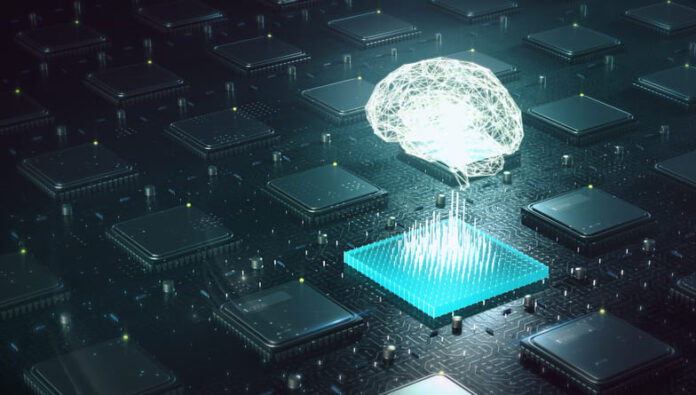By Wale Ameen
In our tech-driven era, AI, quantum computing, and blockchain are reshaping industries. They are solving global challenges and redefining our idea of innovation. These innovations are more than tools. They can upend business paradigms, open new markets, and solve urgent global problems. In fact, as these discoveries continue to advance through research and development, the world is at a turning point in history, and we are all eager participants in the overall scheme of things.
Artificial Intelligence: The Catalyst of Transformation
Almost everywhere you turn now, you will see an application that has an AI component. AI is now the poster child for tech disruption. It touches every sector, from healthcare to entertainment. Its abilities in data analysis, predictive modeling, and automation are helping businesses. They can now make better decisions, optimize operations, and deliver personalized customer experiences.
Impact Areas
- Healthcare: AI-powered diagnostics are improving early detection rates for diseases like cancer, while AI-driven drug discovery is accelerating the development of treatments.
- Climate Action: Machine learning models are predicting climate patterns. They are also optimising renewable energy grids and designing sustainable urban spaces.
- Finance: In finance, AI is helping to streamline processes, reduce fraud, and enable robo-advisors. This is making financial services more accessible.
Challenges
AI holds great promise but ethical issues have emerged. They concern data privacy, algorithmic bias, and job loss. We must regulate AI to ensure sustainable growth. Stakeholders and key industry players must address these issues. They are vital to building a human-centered network of solutions.
Quantum Computing: A Leap Beyond Classical Limits
While still in its nascent stage, quantum computing is another technological breakthrough that will shape the future due to its transformative potential. Quantum computers use quantum bits (qubits). They exist in multiple states at once. This lets them solve complex problems much faster than classical computers.
A good way to put the power of quantum computing into context is the growth of technology company NVIDIA. The company makes advanced computer chips, especially graphics and AI chips. It is now the second-largest U.S. public company, worth $3 trillion. This is well ahead of Apple. Within the last twelve months, Nvidia shares have climbed nearly 200%, which is a remarkable increase. Nvidia’s rapid growth shows that this is a market that that holds much potential.
Applications
Drug Development: Simulating molecular interactions in minutes, not years, could revolutionise pharmaceutical research.
- Cryptography: Quantum computing is set to both disrupt and enhance cybersecurity by breaking traditional encryption methods and creating unhackable systems.
- Logistics: Optimisation problems in supply chain management and transportation could see breakthroughs through quantum algorithms.
Barriers
Quantum computing needs specialised hardware and extreme conditions. It also requires a big R&D investment. The shift from labs to real-world use is still a challenge.
Blockchain: Decentralisation as a Game-Changer
Blockchain is another technology that is shaping the future today. Blockchain offers a secure, transparent, and decentralised process of recording transactions and verifying data. Its rise in popularity is due to the growth of cryptocurrencies. But, its potential goes far beyond finance.
Disruptive Potential
- Supply Chain Management: Due to its decentralisation. It enables traceability and accountability. It fights counterfeit goods and boosts efficiency.
- Digital Identity: Decentralised identities can protect personal data. They can also help underbanked populations access services.
- Smart Contracts: Self-executing contracts on blockchain are revolutionising real estate, legal, and insurance.
Adoption Challenges
Blockchain’s wider use faces major hurdles. These are scalability, energy use, and regulatory uncertainty.
A Holistic Impact on Innovation
These technologies are not isolated; their convergence amplifies their impact. For instance, AI can improve blockchain by predicting fraud in decentralised networks. Quantum computing could then run AI algorithms at new heights. Together, they are addressing some of humanity’s greatest challenges:
- Global Health Crises: AI and blockchain can enable rapid vaccine development and global distribution networks.
- Climate Change: Quantum simulations can optimise renewables. Blockchain can ensure transparent carbon credit trading.
- Financial Inclusion: AI-driven microfinance, blockchain-based digital wallets, and decentralised finance (DeFi) are providing economic opportunities to the underserved.
Navigating the Road Ahead
These technologies can greatly advance development. But collaboration among stakeholders is vital. As the world develops, we must address sustainability and ethical concerns. Policymakers must establish frameworks that encourage innovation while safeguarding societal interests. Owners must also build with the belief that technology should improve the world. Businesses must also upskill their workers. It’s key to meet the demands of a rapidly evolving tech landscape.
Ultimately, the future of innovation lies at the intersection of technological breakthroughs and human ingenuity. By embracing AI, quantum computing, and blockchain thoughtfully, we can pave the way for a world that is more efficient, equitable, and sustainable.
The road ahead may be complex. But, it is full of possibilities that were once science fiction. The challenge and opportunity lie in turning these possibilities into transformative realities.
About the Author
Wale Ameen is a trailblasing technology thought leader/entrepreneur. He is a project planner and power BI developer. He is the founder of DatastreamSend, foremost messaging communication platform offering business communication solution to businesses in the United Kingdom and Nigeria.
Disclaimer: This article contains sponsored marketing content. It is intended for promotional purposes and should not be considered as an endorsement or recommendation by our website. Readers are encouraged to conduct their own research and exercise their own judgment before making any decisions based on the information provided in this article.








